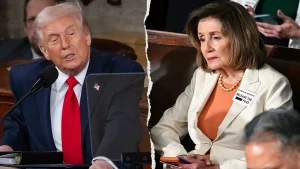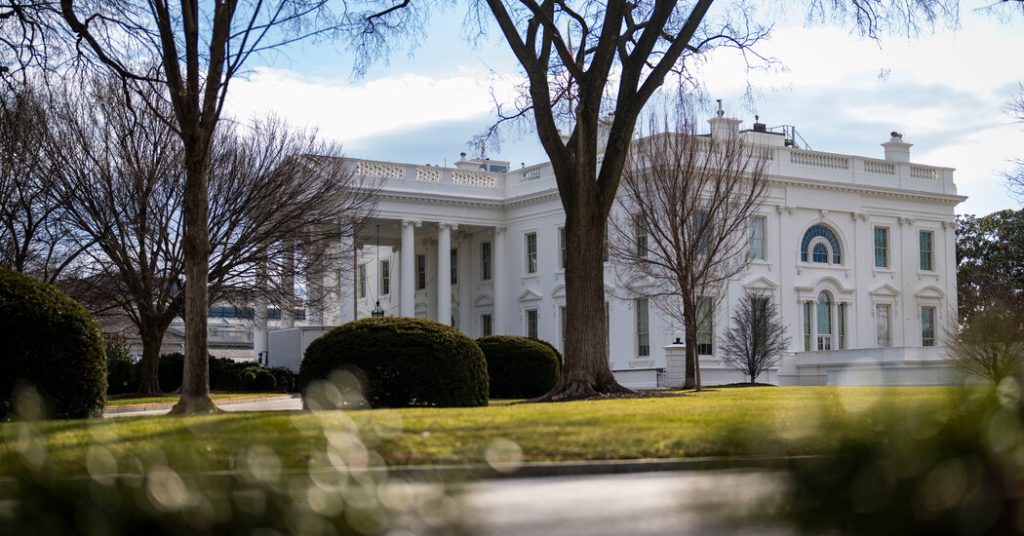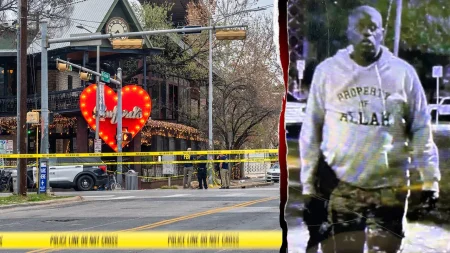A federal judge in Washington D.C. temporarily blocked the Trump administration’s sweeping freeze on trillions of dollars in federal grants and loans, delivering a significant blow to the White House’s Office of Management and Budget (OMB). This action followed a similar order issued by a federal judge in Rhode Island just days prior, creating a unified front of judicial resistance against what was perceived as an overreach of executive authority. Judge Loren L. AliKhan of the D.C. District Court issued a restraining order, arguing that the freeze threatened the operational lifeline of countless organizations and interfered with Congress’s power to appropriate federal funds, a cornerstone of the Constitution. Her order explicitly applied to all federal grants, loans, and other spending affected by the freeze, clarifying the scope of the Rhode Island judge’s order, which had left some ambiguity about its nationwide applicability.
The Trump administration’s attempt to halt the disbursement of funds sparked swift legal challenges and widespread chaos among organizations reliant on federal support. The OMB memo initiating the freeze was ostensibly intended to ensure compliance with separate executive orders issued by President Trump earlier in his term, targeting policies he disapproved of, such as diversity, equity, and inclusion initiatives. However, critics argued that the memo extended beyond the scope of these orders, encompassing vague concepts like “wokeness” and implementing a blanket freeze that indiscriminately affected a vast swathe of federal funding. The administration’s subsequent attempt to rescind the memo was undermined by contradictory statements, notably a declaration by the White House press secretary that the retraction did not constitute a rescission of the funding freeze. This fueled suspicions that the freeze remained in effect despite the official withdrawal of the memo.
Judge AliKhan’s decision came after a hearing in which she expressed her intent to issue the order before a previous administrative stay expired. The case before her was brought by charities and other non-governmental organizations heavily reliant on federal grants for their operations. They argued that the freeze not only threatened their financial viability but also infringed upon their First Amendment rights. The Justice Department, representing the Trump administration, argued that the Rhode Island judge’s order already covered the entire scope of the funding freeze, rendering further action unnecessary. However, the plaintiffs countered that the Rhode Island order could be lifted at any time, necessitating additional protection for their clients.
Central to the litigation was the persistent ambiguity surrounding the funding freeze, even after the OMB withdrew the memo. The Justice Department contended that if agencies were withholding funds based on Trump’s executive orders or independent decisions, judicial intervention would be inappropriate. The plaintiffs, however, urged the judge to acknowledge the “reality” that the freeze was implemented immediately following the OMB memo, suggesting a direct causal link. They further requested that the court order the OMB to notify all recipients of the original memo that the freeze had been blocked and instruct them to reverse any steps taken to implement it.
This request highlighted the far-reaching implications of the case, with the plaintiffs essentially seeking judicial oversight of all federal financial assistance. The Justice Department opposed this, arguing that such an order would be excessively broad, intruding upon the authority of numerous agencies not involved in the litigation and impinging on the President’s executive power. Despite these objections, Judge AliKhan’s final order included the notification requirement, directing the OMB to inform all relevant parties of the freeze’s invalidation and mandate the reversal of any actions taken in accordance with the original memo.
The temporary block on the funding freeze represents a significant legal setback for the Trump administration. The judges’ decisions reflect a concern about the potential overreach of executive authority and the disruption caused by the sudden and sweeping nature of the freeze. The litigation also underscores the challenges in navigating the complex interplay between executive orders, agency actions, and congressional appropriations. The ambiguity surrounding the continued implementation of the freeze, despite the withdrawal of the OMB memo, further complicates the legal landscape. The court’s decision to require notification of all affected parties underscores the importance of transparency and accountability in the administration of federal funds.
The cases in both Rhode Island and Washington D.C. represent a pushback against what some perceive as an attempt by the Trump administration to circumvent Congress’s power of the purse. The judges’ willingness to intervene suggests a recognition of the potential harm caused by the freeze and the need to protect the interests of organizations reliant on federal funding. The legal battle highlights the ongoing tension between the executive and judicial branches over the limits of executive power, particularly in the realm of fiscal policy. The outcome of these cases will have significant implications for the distribution of federal funds and the ability of the executive branch to control spending through administrative actions.









